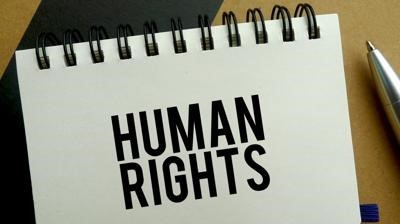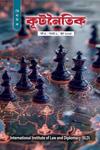
Download PDF Human Right Diary
Human Rights in Short-- Human rights are fundamental entitlements and protections that every
individual possesses simply by virtue of being human. These rights are universal, inalienable, and
indivisible, encompassing a wide range of civil, political, economic, social, and cultural liberties.
Civil and political rights include freedoms such as the right to life, liberty, and security, as well as
freedom of speech, religion, and a fair trial. Economic, social, and cultural rights encompass access
to education, healthcare, and an adequate standard of living.
Human rights are protected by the domestic laws like the constitutional law and international
treaties, such as the Universal Declaration of Human Rights and the International Covenants like,
Covenant on Civil and Political Rights, Covenant on Economic, Social and Cultural Rights.
Governments are responsible for upholding and respecting these rights within their territories, and
individuals have the right to seek redress if their rights are violated. Human rights are essential for
promoting dignity, equality, and social justice. They provide a framework for addressing
discrimination, inequality, and social injustices around the world, emphasizing the importance of
treating every person with respect and ensuring their well-being. Upholding human rights is a
shared responsibility of individuals, communities, governments, and the international community.
They also serve as a moral compass for just and equitable societies, protecting individuals from
discrimination, oppression, and abuse, and ensuring their entitlement to live with freedom, dignity,
and opportunity. Upholding human rights is a cornerstone of a just and fair global community.
Violation of Civil and Political Rights in Bangladesh--Bangladesh is facing persistent human
rights violations, particularly concerning cases of torture and inhuman treatment. Reports from
human rights organizations have raised concerns about the excessive use of force by law
enforcement agencies, leading to torture, ill-treatment, and extrajudicial killings. This has often
resulted in a climate of fear and impunity, where accountability for these abuses remains a
challenge. These practices of rights violation not only violate international human rights standards
but also undermine trust in the justice system.
Protection against torture and inhuman treatment is a fundamental human right enshrined in
international law. The prohibition of torture is absolute, and no exceptional circumstances can
justify its use. This principle is outlined in various international agreements, most notably the
United Nations Convention against Torture and Other Cruel, Inhuman, or Degrading Treatment or
Punishment. In essence, protection against torture is a fundamental component of human rights,
ensuring that individuals are treated with dignity and respect, free from cruel and degrading
treatment, regardless of their circumstances or the charges against them. To address these
violations, it's crucial to continue monitoring and advocating for human rights, promoting
accountability, and strengthening the rule of law to ensure that all individuals in Bangladesh can
enjoy their fundamental human rights and dignity.





Leave a reply